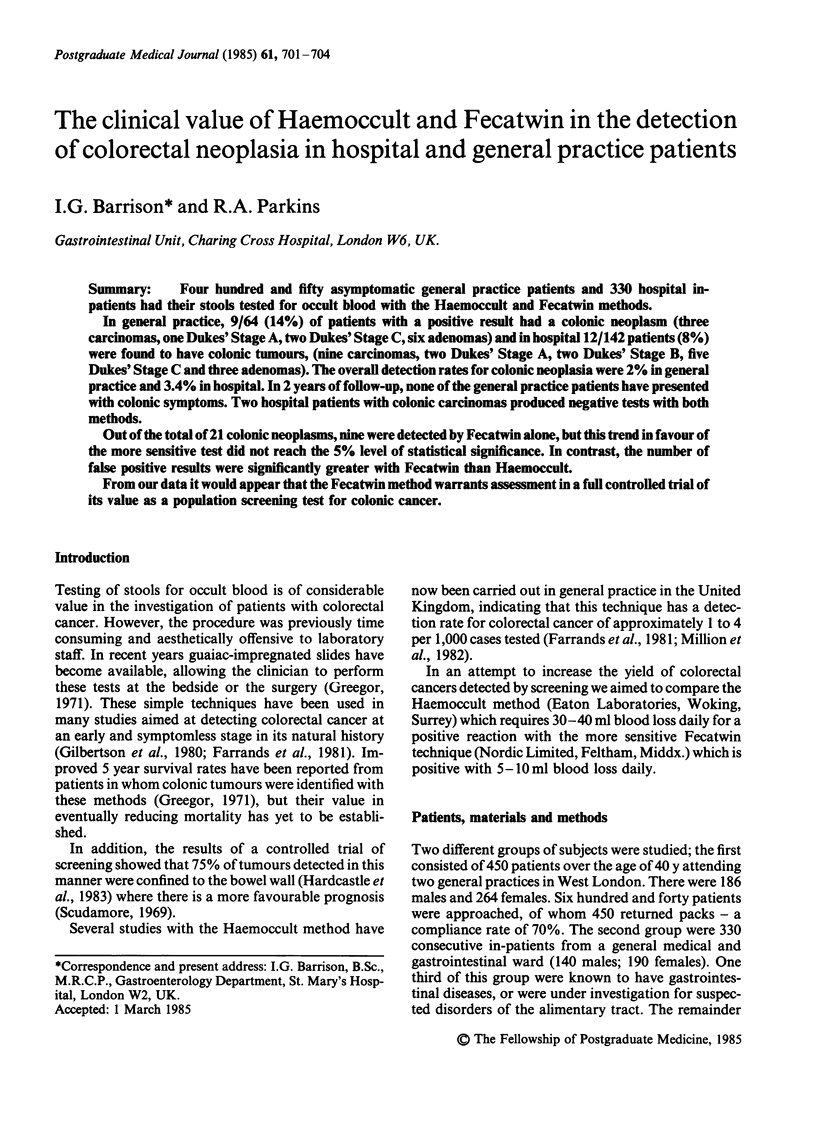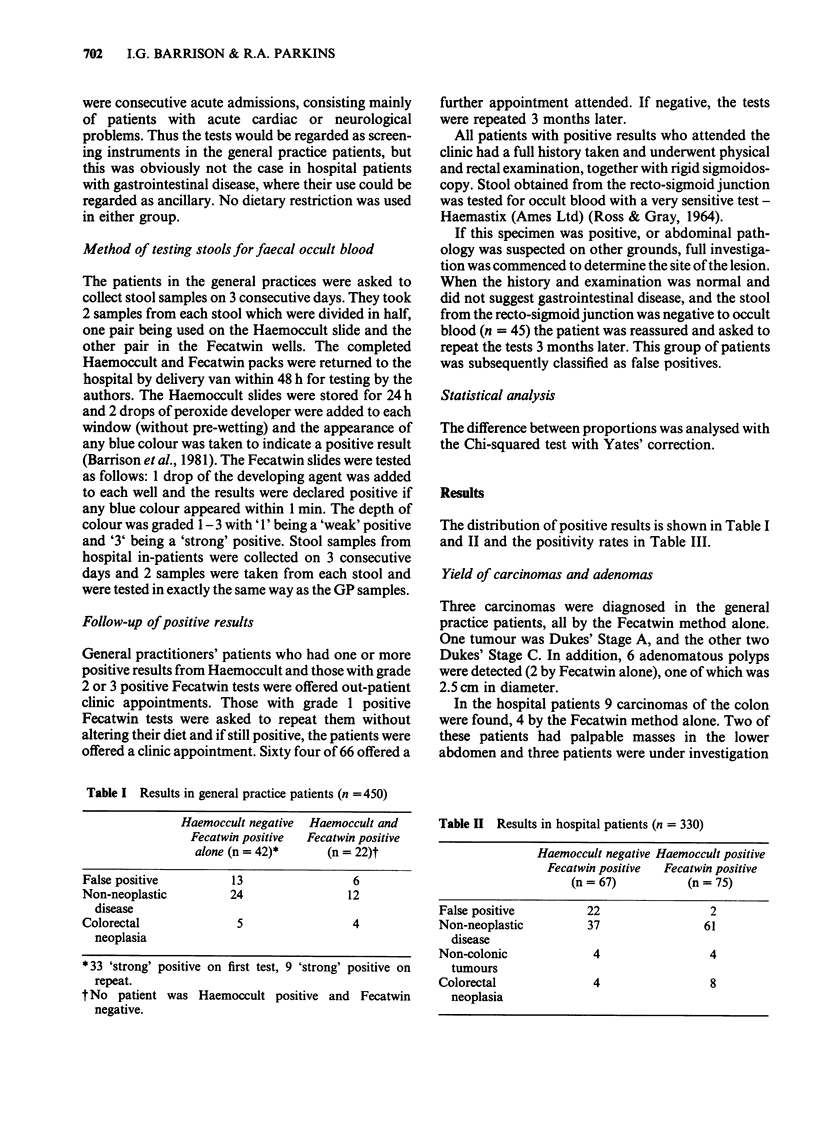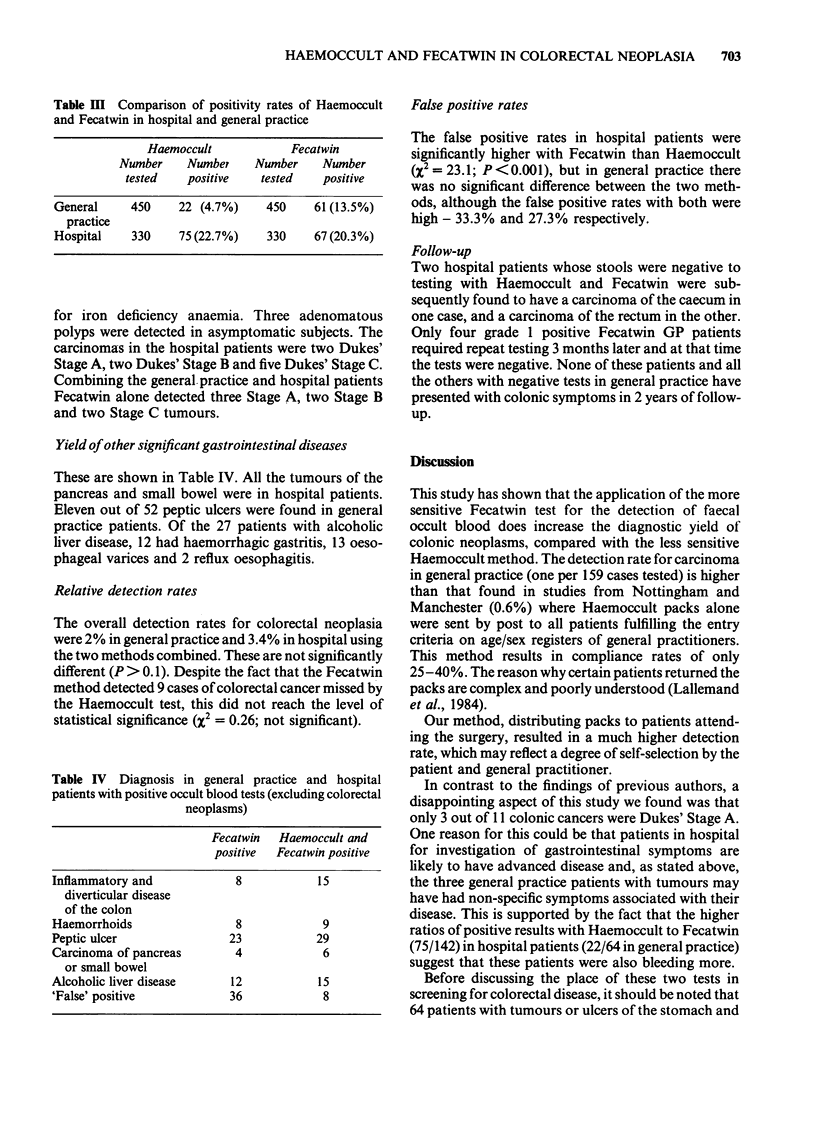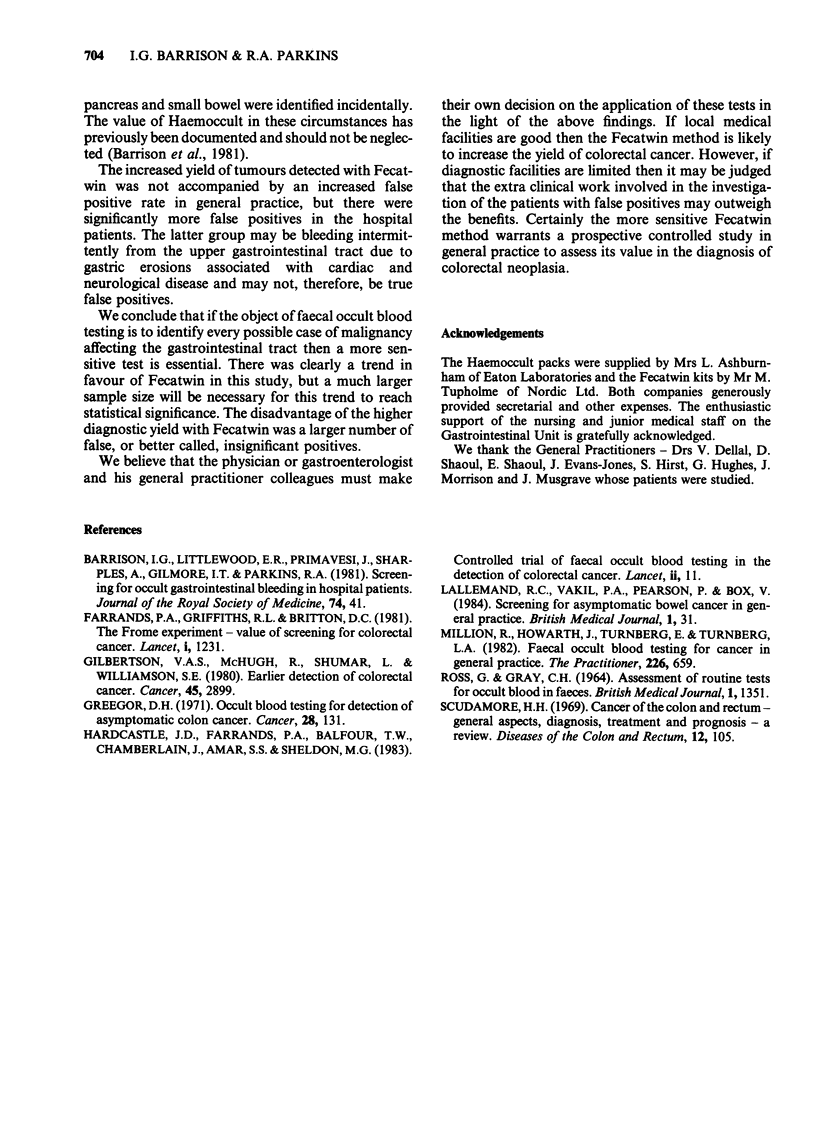Abstract
Four hundred and fifty asymptomatic general practice patients and 330 hospital inpatients had their stools tested for occult blood with the Haemoccult and Fecatwin methods. In general practice, 9/64 (14%) of patients with a positive result had a colonic neoplasm (three carcinomas, one Dukes' Stage A, two Dukes' Stage C, six adenomas) and in hospital 12/142 patients (8%) were found to have colonic tumours, (nine carcinomas, two Dukes' Stage A, two Dukes' Stage B, five Dukes' Stage C and three adenomas). The overall detection rates for colonic neoplasia were 2% in general practice and 3.4% in hospital. In 2 years of follow-up, none of the general practice patients have presented with colonic symptoms. Two hospital patients with colonic carcinomas produced negative tests with both methods. Out of the total of 21 colonic neoplasms, nine were detected by Fecatwin alone, but this trend in favour of the more sensitive test did not reach the 5% level of statistical significance. In contrast, the number of false positive results were significantly greater with Fecatwin than Haemoccult. From our data it would appear that the Fecatwin method warrants assessment in a full controlled trial of its value as a population screening test for colonic cancer.
Full text
PDF



Selected References
These references are in PubMed. This may not be the complete list of references from this article.
- Barrison I. G., Littlewood E. R., Primavesi J., Sharples A., Gilmore I. T., Parkins R. A. Screening for occult gastrointestinal bleeding in hospital patients. J R Soc Med. 1981 Jan;74(1):41–43. [PMC free article] [PubMed] [Google Scholar]
- Farrands P. A., Griffiths R. L., Britton D. C. The Frome experiment--value of screening for colorectal cancer. Lancet. 1981 Jun 6;1(8232):1231–1232. doi: 10.1016/s0140-6736(81)92401-6. [DOI] [PubMed] [Google Scholar]
- Gilbertsen V. A., McHugh R., Schuman L., Williams S. E. The earlier detection of colorectal cancers: a preliminary report of the results of the Occult Blood Study. Cancer. 1980 Jun 1;45(11):2899–2901. doi: 10.1002/1097-0142(19800601)45:11<2899::aid-cncr2820451132>3.0.co;2-m. [DOI] [PubMed] [Google Scholar]
- Greegor D. H. Occult blood testing for detection of asymptomatic colon cancer. Cancer. 1971 Jul;28(1):131–134. doi: 10.1002/1097-0142(197107)28:1<131::aid-cncr2820280125>3.0.co;2-i. [DOI] [PubMed] [Google Scholar]
- Lallemand R. C., Vakil P. A., Pearson P., Box V. Screening for asymptomatic bowel cancer in general practice. Br Med J (Clin Res Ed) 1984 Jan 7;288(6410):31–33. doi: 10.1136/bmj.288.6410.31. [DOI] [PMC free article] [PubMed] [Google Scholar]
- Million R., Howarth J., Turnberg E., Turnberg L. A. Faecal occult blood testing for colorectal cancer in general practice. Practitioner. 1982 Apr;226(1366):659–663. [PubMed] [Google Scholar]
- ROSS G., GRAY C. H. ASSESSMENT OF ROUTINE TESTS FOR OCCULT BLOOD IN FAECES. Br Med J. 1964 May 23;1(5394):1351–1354. doi: 10.1136/bmj.1.5394.1351. [DOI] [PMC free article] [PubMed] [Google Scholar]
- Scudamore H. H. Cancer of the colon and rectum--general aspects, diagnosis, treatment, and prognosis. A review. Dis Colon Rectum. 1969 Mar-Apr;12(2):105–114. [PubMed] [Google Scholar]
- Zoppi G., Gasparini R., Mantovanelli F., Gobio-Casali L., Astolfi R., Crovari P. Diet and antibody response to vaccinations in healthy infants. Lancet. 1983 Jul 2;2(8340):11–14. doi: 10.1016/s0140-6736(83)90004-1. [DOI] [PubMed] [Google Scholar]


